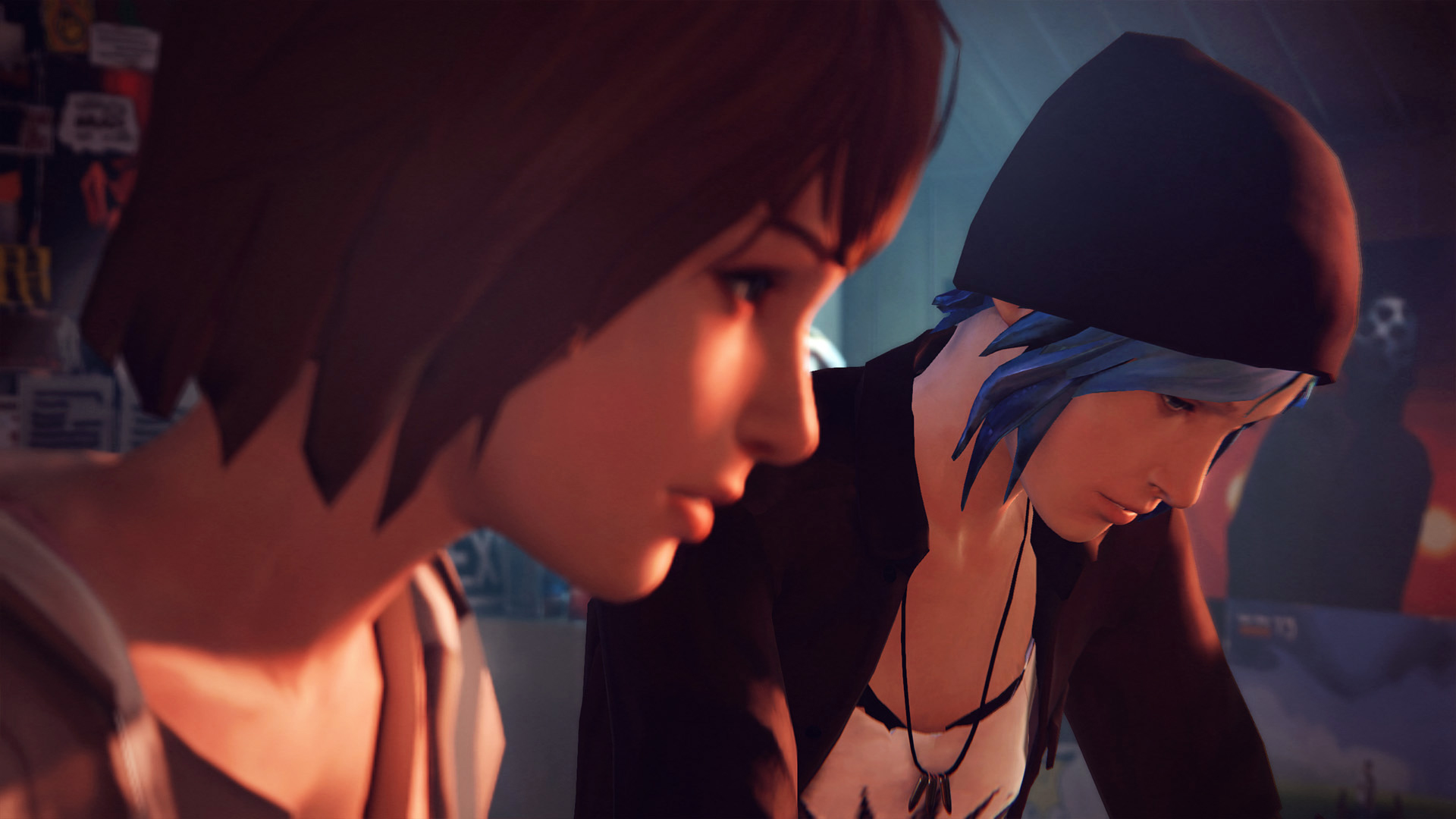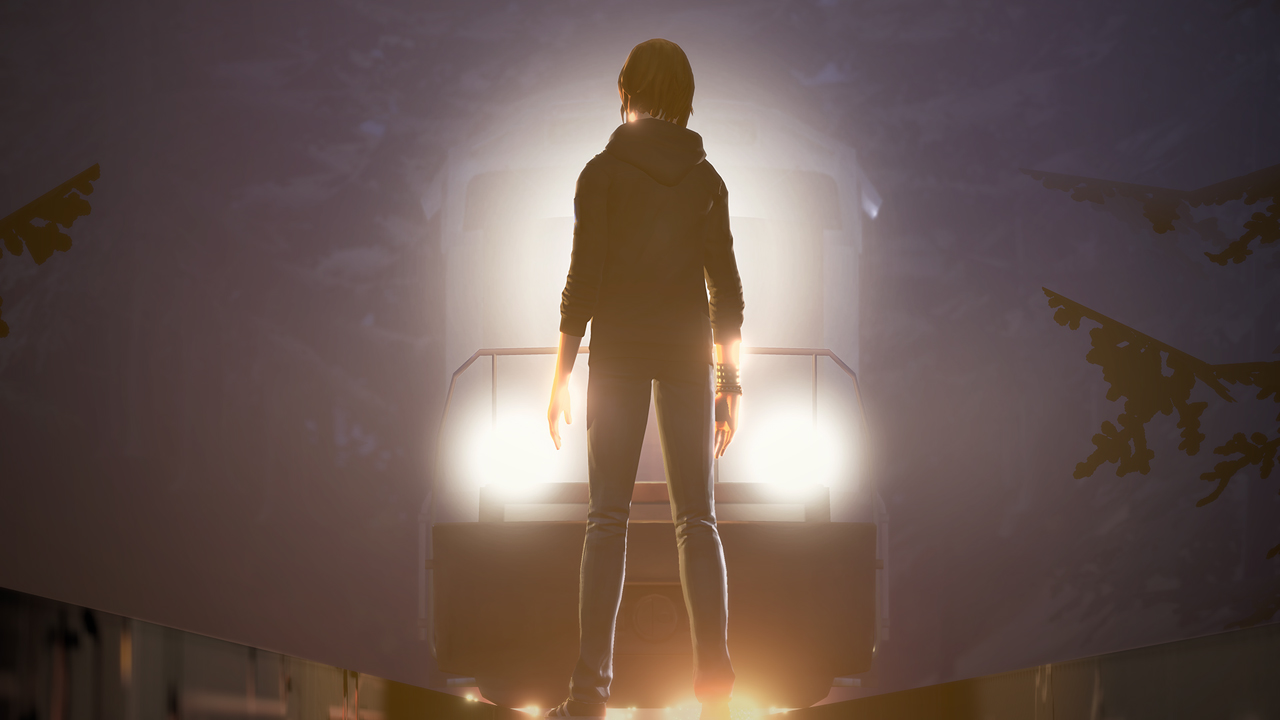Life is Strange: Before the Storm understands how grief can be mistaken for teen angst, and how it can completely change you
Everything Chloe has been through paints a picture not of teen hormones going wild, but of a person struggling to find her place in the world
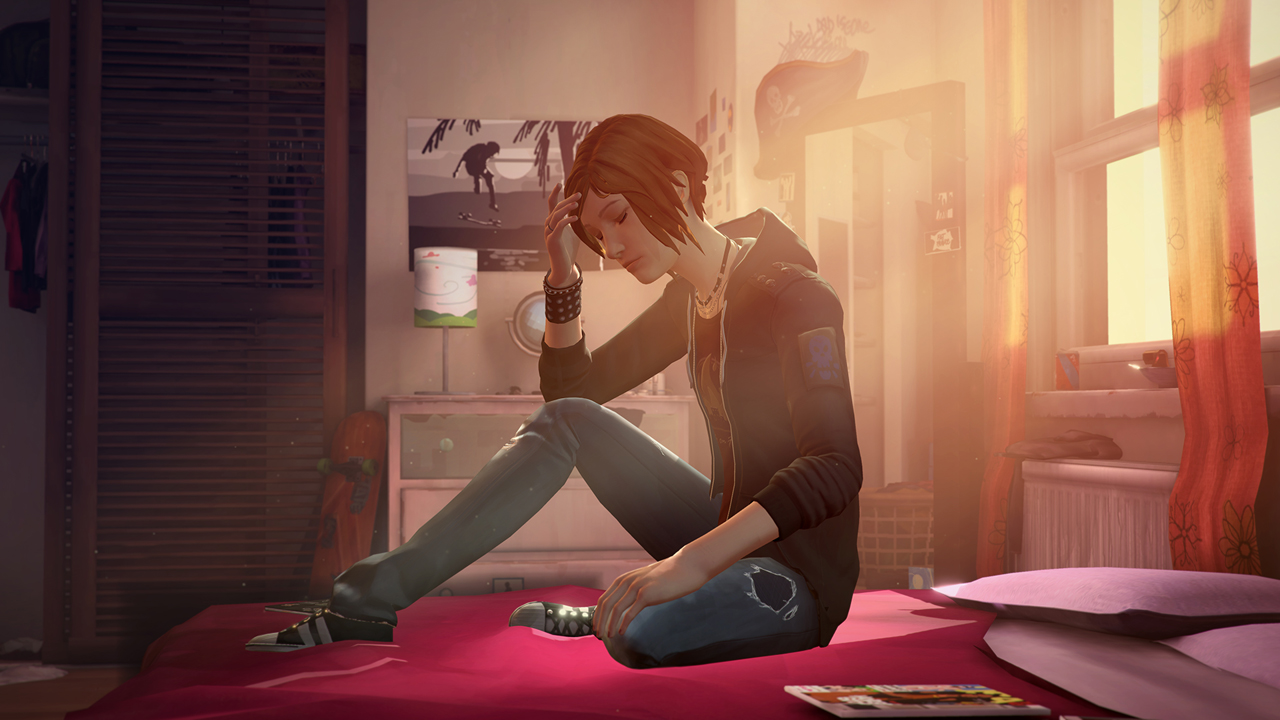
One thing is for sure: Chloe is not Max. In contrast to the shy, wary photographer from the first Life is Strange game, Chloe is a confrontational, sharp-tongued asshole. Her hair might not be blue yet, but she’s every inch the rebel that we shot bottles with in a scrapyard back in 2015. Except now she’s alone, trying her best to forge a friendship with the ambitious but enigmatic Rachel Amber. And it turns out that when she has a game all to herself without the calming influence of Max nearby, she’s the centre of quite a bit of trouble. At times. Appearances are deceptive, as underneath this tough exterior is a genuine portrait of teen grief, loneliness, and fear.
The Old Mill isn’t in the best shape. Rotting floorboards, bottles on the floor, lots of moody teen scrawls like ‘don’t touch my soul with dirty hands’ and ‘what’s wrong with me’ on the walls - you get the general idea. Walking through it, I can almost feel the sawdust falling from the ceiling and smell the sweat from the mosh pit. You know instantly why Chloe is there. The thumpingly-loud music, the erratic dancing that’s no doubt fuelled by alcohol and illicit substances, the downright shitty interior decorating: everything is pushed right to the brink. Excitement pumps through Chloe’s inner monologue when she arrives, her upbeat exclamations a glimpse into the carefree girl she was before being worn down by a metric ton of grief. Although it might scare a health and safety inspector to death, the Firewalk concert at The Old Mill is a chance for Chloe to let go and not think about fitting in… or about what awaits her at home.
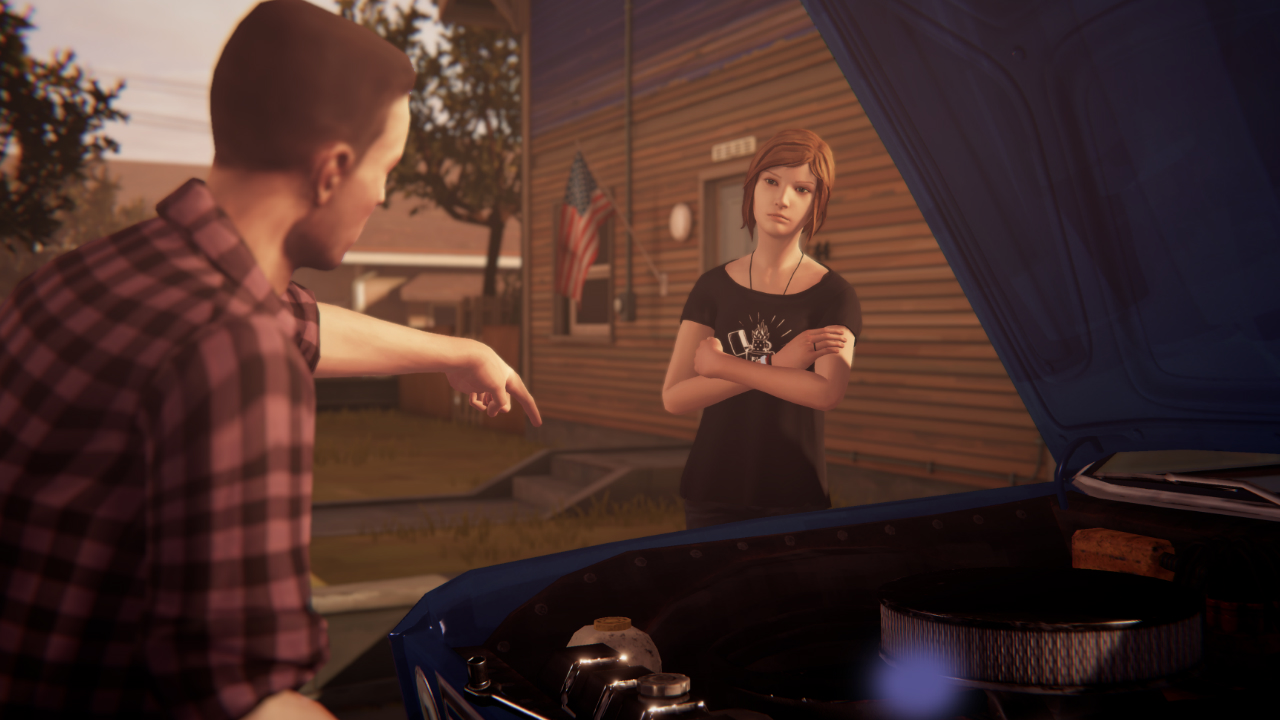
I’m not going to defend Chloe’s attempt to swipe (i.e. steal) a t-shirt from the vendor at the concert. What I will defend, however, is her reaction to the seller’s snarky remarks - calling her baby, especially. How patronising can you get? To be fair, releasing the handbrake in his car and sending it down into a ditch was a bit of an overreaction. Yet the more metaphorical rubbish Chloe gets thrown her way, the more you see why she has a tendency to act out. Having a different guy come onto her and exploiting the guilt she feels at accidentally spilling his beer is enough to put anyone in a bad mood. Unlike with Max, who has to deal with the bullying and drama that comes with a high-school existence in the original game, Chloe is part of a different crowd. She’s pushing her own limits by mixing with people who anyone else would try to avoid. Provoking others with her barbed comments, whenever she’s backed into a corner instead of trying to de-escalate the situation she lashes out with insults, punishing those who hurt her before their equally malicious remarks have a chance to sink in.
It doesn’t mean that Chloe’s right to swipe - i.e. steal - a t-shirt. Taking $200 out of the vendor’s safe box isn’t exactly cool either. But that, paired with the fact that she graffitis either an evil eye or a catchphrase on a rusty sawblade, just shows how far Chloe is willing to go to make an impact. At the root of every one of her rebellious actions is an intense loneliness. Her best friend has left her. Her dad is dead. Her mother has a new man. Chloe is going through a miserable time - but her elated dancing and euphoric cheering at the concert shows that she’s not completely broken inside; that there’s still a glimmer of hope she might come through everything alright.
Why so sad?
Not that anyone else - apart from Rachel Amber - would think Chloe has a chance at happiness. On the outside Chloe is brash, sarcastic, bordering on downright hostile. She resents her mother for taking down family photos in their living room before being dumbstruck that she can’t recall who was in it. Any attempt by her soon-to-be-stepfather David to get closer to her is met with sharp retorts. But playing as Chloe, you can hear her fear that any memories of her dad will be erased from their home. He’s clearly still at the forefront of her mind, and seeing another man start to move in and possibly eventually become a father figure is terrifying for her. Not least because David (unintentionally, I’m sure of it) seems to look down on her dad. As he smirks at Chloe’s father’s toolbox, which admittedly is smaller than his own, it’s not hard to see why Chloe feels threatened.
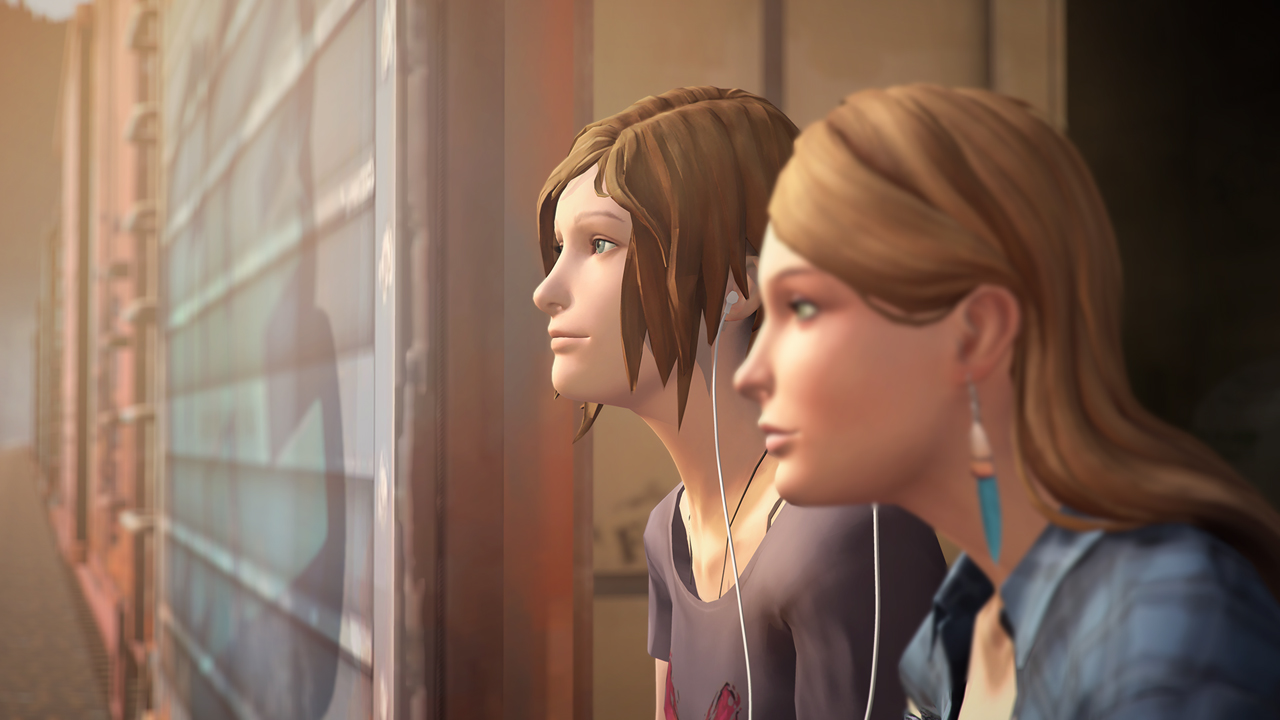
Okay, so David might try and mansplain spark plugs when Chloe already knows exactly what they do, but her intense dislike of him comes not from his personality but from what he represents. David is a sign that her mother is moving on. Chloe is not. How can she? After her father’s death Max moved away, meaning that Chloe never had the chance to talk to her about her grief. And she had to deal with her best friend leaving her for Seattle. She’s a loner, trying desperately to reach out to Max via multiple deceptively-chirpy texts that, cruelly, get practically no replies. To make up for the lack of support she names her journal Max, imagining that each entry is a letter to her best friend. So she’s internalised her grief, channeling it into an aggressive attitude towards anyone who tries to get underneath her hard exterior. I don’t doubt that she’s subconsciously doing it to protect herself from more heartbreak - but all it results in is chasing away people who care about her.
The weight of the world is on Chloe’s shoulders
Max walked through other people’s lives, whether it was tipping paint on the unsuspecting Victoria or ignoring Kate’s phonecalls. Her rewind ability means players have the luxury of choosing which version of an event they like better - but that’s not the case with Chloe. In Max’s world you had to delve deep to find out that things were seriously wrong, but Chloe doesn’t have that option. Unsheltered from the goings-on in a more deprived version of Arcadia Bay, she discovers that the Prescott company (the same that Nathan from the first game belongs to) fired 307 dockworkers, and rescinded their pensions. A stray bill on the table shows that her mum can’t afford Blackwell’s fees, as Chloe’s scholarship doesn’t cover all the costs. The yet-to-be-blue-haired teen knows all this is going on. The knowledge that other people are going through a hard time will influence how you navigate her everyday struggles. Do you put yourself first and shield Chloe from more pain, or open up and risk being rebuked again? Sometimes it might be as simple as choosing between a butterfly (which just happens to be Max’s spirit animal), raven, or Firewalk t-shirt, and other times it might be the choice between giving someone space or trying to comfort them.
Weekly digests, tales from the communities you love, and more

However you decide to play Chloe, Before the Storm is going to make you see her and Arcadia Bay in a completely different way. Maybe it’ll even foster a tiny seed of dislike for Max in you heart, after seeing how she neglected her best friend. Nothing is certain, apart from one thing - Chloe isn’t the epitome of teen angst. She’s someone in need of help. Let’s hope that Rachel Amber gives it to her… although we already know how that will end.
While here at GamesRadar, Zoe was a features writer and video presenter for us. She's since flown the coop and gone on to work at Eurogamer where she's a video producer, and also runs her own Twitch and YouTube channels. She specialises in huge open-world games, true crime, and lore deep-dives.
